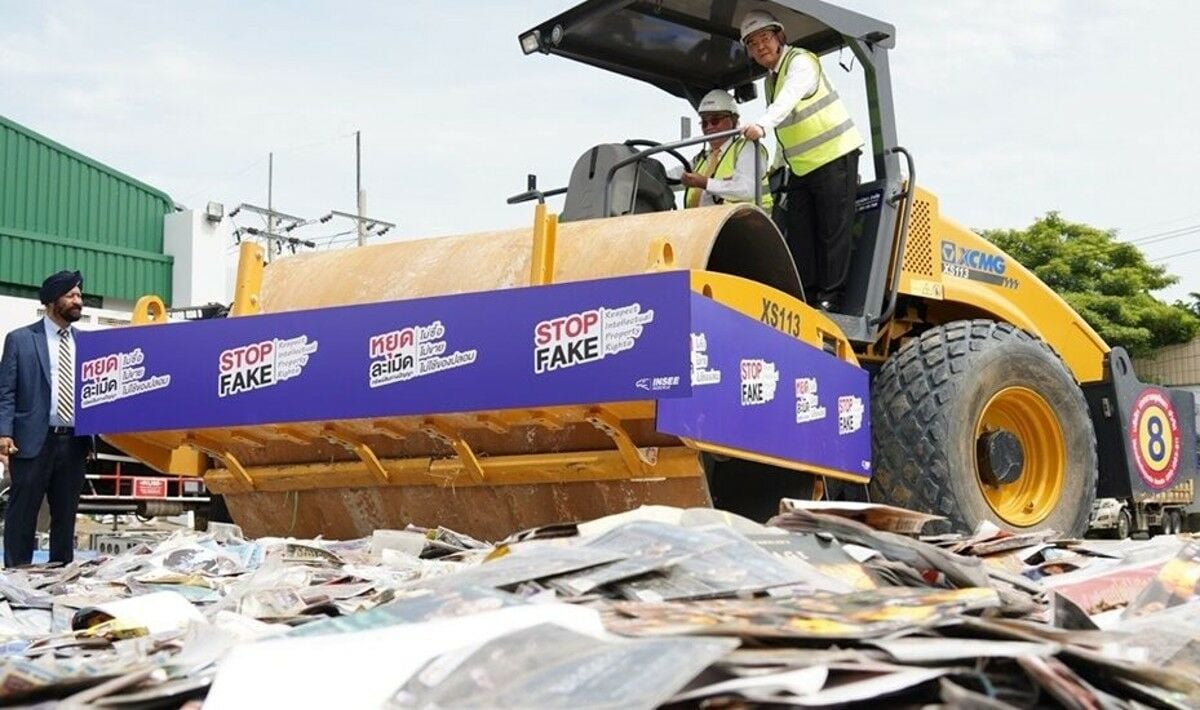Thai government destroys counterfeit goods worth 325 million baht

Thai officials recently conducted a significant destruction of counterfeit and pirated goods in an effort to combat intellectual property rights violations. The ceremony took place at the Air Defence Command headquarters in Don Mueang, Bangkok, and was led by Deputy Prime Minister and Commerce Minister Phumtham Wechayachai.
Phumtham, alongside Deputy Commerce Minister Napintorn Srisangpang, Commerce Ministry Permanent Secretary Wuttikrai Leeviraphan, and Acting Director-General of the Department of Intellectual Property Awut Wongsawat, highlighted the government’s commitment to protecting intellectual property rights. The destruction of counterfeit goods is seen as a crucial measure to address intellectual property violations transparently and in accordance with World Trade Organisation (WTO) standards, including environmental considerations.
The destroyed items included apparel, watches, bags, electronic devices, automotive parts, pharmaceuticals, cosmetics, food, and beverages. These items, seized by various agencies such as the Royal Thai Police (RTP), the Customs Department, and the Department of Special Investigation (DSI), amounted to 1,249,588 pieces with a total estimated value exceeding 325 million baht.
Phumtham emphasised the importance of destroying counterfeit goods to reassure trading partners, investors, and intellectual property owners that these illicit products will not re-enter the market. He also highlighted the broader impact on public awareness, noting that counterfeit products can pose severe health risks to consumers due to their substandard quality.
“This year, we are destroying counterfeit goods not only in Bangkok but also in Saraburi and Chon Buri provinces. This includes a wide range of items from clothing to electronics, all of which were seized and are now being responsibly disposed of.”
Counterfeit destruction
The destruction ceremony involved Phumtham and Napintorn symbolically crushing counterfeit goods with a steamroller, underscoring the government’s stance against allowing these items to return to circulation. This act serves as a public demonstration of Thailand’s dedication to protecting intellectual property and ensuring consumer safety.
Thailand’s efforts have been recognised in the Special 301 Report by the United States Trade Representative (USTR), which assesses global intellectual property protection. Despite the commendations, Thailand remains on the Watch List, indicating the need for continued vigilance and action against intellectual property infringements.
“The world is moving towards a new global trade system that respects intellectual creativity and innovation. We must ensure that investors, entrepreneurs, and manufacturers are confident in the Thai government’s serious commitment to protecting their rights.”
The Thai government aims to remove the country from the Watch List by intensifying its enforcement against counterfeit goods. This commitment is not only to protect investors and businesses but also to safeguard Thai consumers from the dangers of using substandard counterfeit products, reported KhaoSod.
Latest Thailand News
Follow The Thaiger on Google News:


























